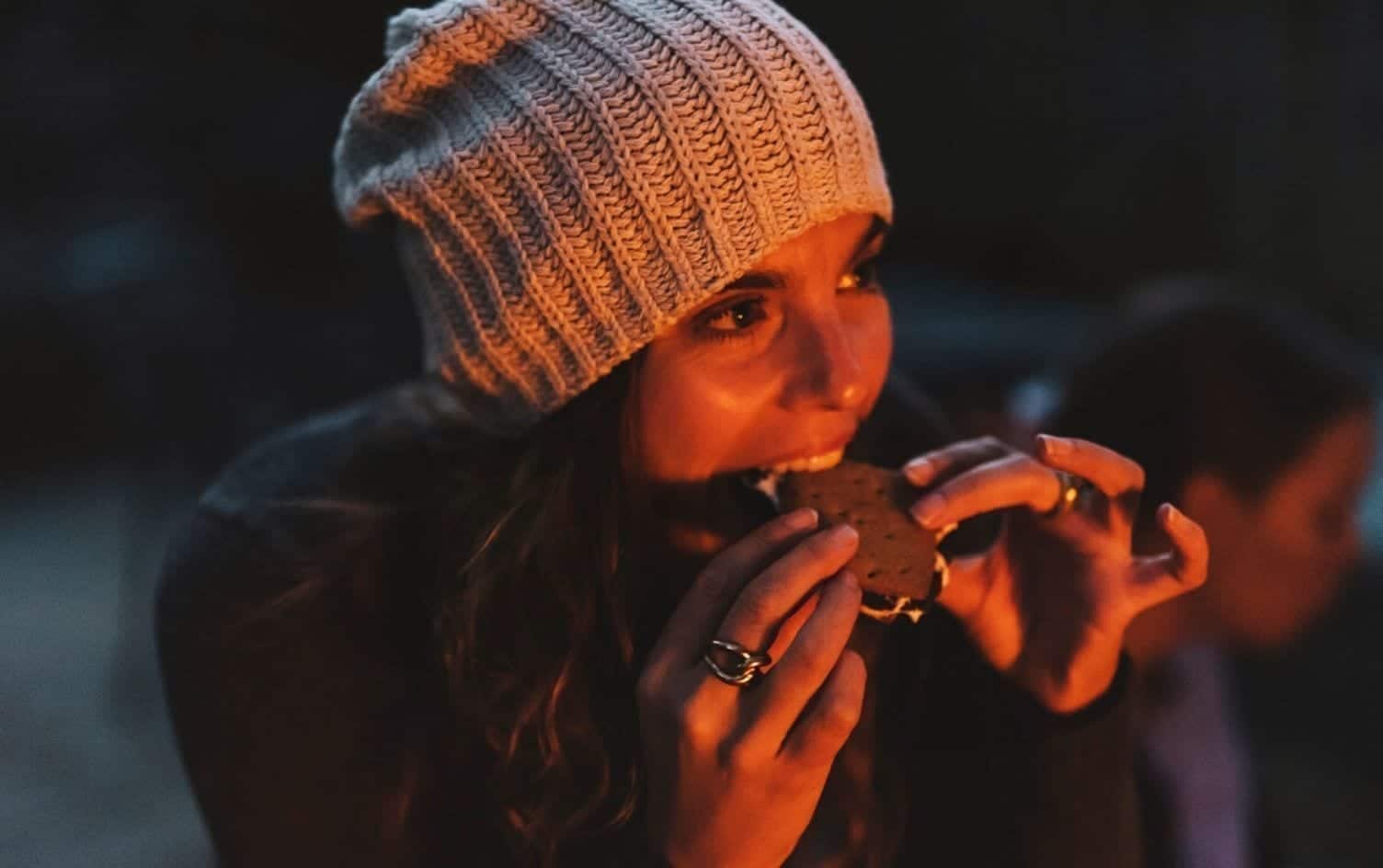With endless new Netflix documentaries and late-night food delivery at our fingertips, getting a good night’s sleep takes effort. As anyone who’s found themselves standing in front of the fridge (or polishing off a bag of popcorn) at 10 o’clock knows, going to bed stuffed is a major sleep saboteur.
“Eating too close to bedtime can certainly disrupt sleep,” says Erin Stokes, a naturopathic doctor and medical director at MegaFood. In fact, one study published in the Journal of Clinical Sleep Medicine has linked eating at night with poorer sleep quality, especially in women.
To score more sound shut-eye, you’ll want to reconsider that late-night snack — and even how long before bed you eat dinner.
HOW EATING TOO CLOSE TO BEDTIME AFFECTS SLEEP
Going to bed with a full belly interferes with your sleep in a number of ways.
First, the digestive system slows at night, according to Candice Seti, PsyD, “The Insomnia Therapist.” As a result, if you hit the hay with a full stomach, you’ll likely experience indigestion throughout the night, which can leave you uncomfortable and staring at the ceiling.
This is especially problematic for people with gastroesophageal reflux disease (GERD), adds naturopathic doctor Kasey Nichols. If food doesn’t have time to pass from the stomach into the intestines before bedtime, GERD patients may experience heartburn and other symptoms, like coughing, that results from stomach acid creeping up the esophagus.
Eating right before bed can also cause blood sugar levels to spike (giving you a surge of energy) right when you want to unwind and sink into restorative sleep, says Amita Fotedar, PhD, a medical advisor for Sleep Standards.
Eating at night can also interfere with your production of human growth hormone and melatonin, two hormones that help facilitate quality sleep, Fotedar adds.
EATING AND SLEEP HYGIENE
“Exactly when to stop eating before bed varies from person to person, since the speed of our metabolisms varies,” says Stokes.
That said, sleep experts recommend the average person stop eating 2–3 hours before bed. This allows your digestive system ample time to break down your meal before your head hits the pillow.
INCLUDE (AND AVOID) THESE NUTRIENTS IN YOUR DINNER FOR BETTER SLEEP
Not only does when you eat that last meal of the night matter, but what you eat impacts your sleep, too. While certain foods and nutrients support a good night’s rest, others sabotage the process.
Sleep-Friendly Foods: Your goal at dinner should be to eat enough to feel satiated, but not overly full, says Stokes. Focus on easy-to-digest vegetables, a small amount of high-quality fat (like a few slices of avocado) and a small amount of high-quality protein (like a serving of fish).
Since the neurotransmitter serotonin promotes sleep, Seti recommends incorporating serotonin-boosting foods, like complex carbohydrates, into your last meal. Examples include whole grains (like oats or barley) and sweet potatoes.
Not-So-Sleep-Friendly Foods: To avoid a late-night blood sugar spike, make sure to avoid foods high in sugar and refined carbs, suggests Seti. That means many packaged snack foods, like crackers, pretzels and cookies, are off the table.
Other foods to avoid — especially for people with GERD — is anything that can contribute to heartburn or similar symptoms. “Avoid acidic, spicy foods, as well as chocolate and coffee late at night,” says Nichols. Fatty foods, like chips, can contribute to similar issues.
Another big one to be wary of: alcohol.
“Alcohol is known to suppress melatonin release from the pineal gland,” says Nichols. The result: You wake up feeling groggy and unrested after hitting the hay with alcohol in your system.
To minimize alcohol’s impact on your sleep as much as possible, Fotedar recommends you stop consuming alcohol a whopping five hours before bed.
WHAT ABOUT WATER?
Alcohol aside, even drinking good-for-you liquids too close to bedtime — like water and chamomile tea — can disrupt sleep.
“If the need to go to the bathroom wakes you up in the middle of the night, it can be challenging to get high-quality, restorative sleep afterward,” says Stokes, who recommends getting in most of your hydration before dinner.
“Having small sips of water in the evening after dinner is fine, but you want to complete the bulk of your water intake at least an hour before bedtime,” she says.
Fotedar, meanwhile, recommends limiting fluid intake as much as possible during the last 90 minutes before bed — and stopping at the bathroom before going to sleep.




